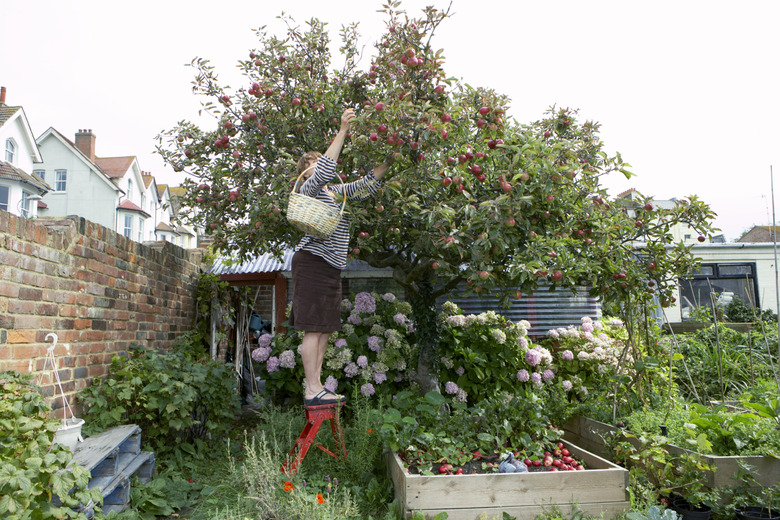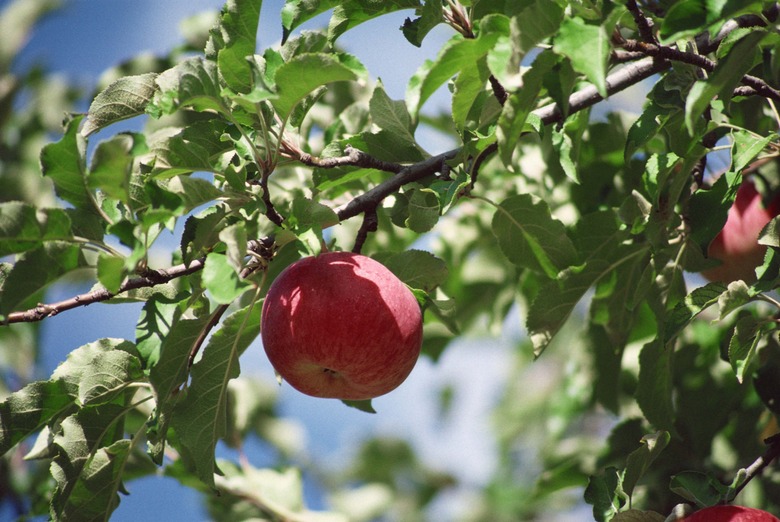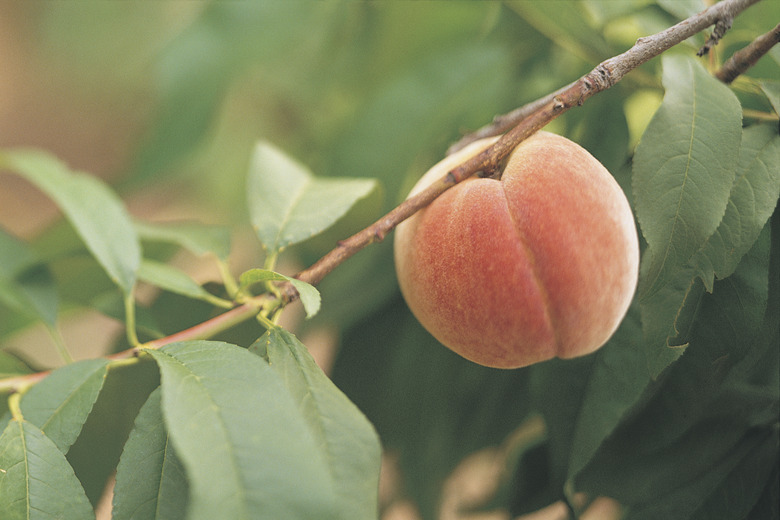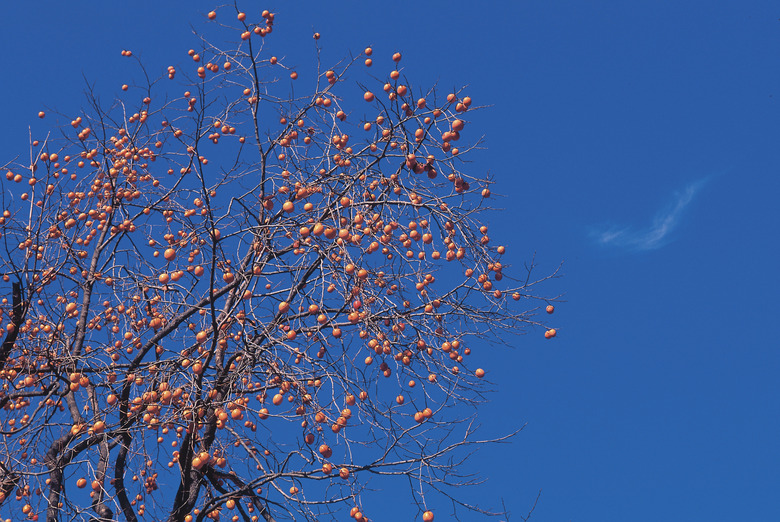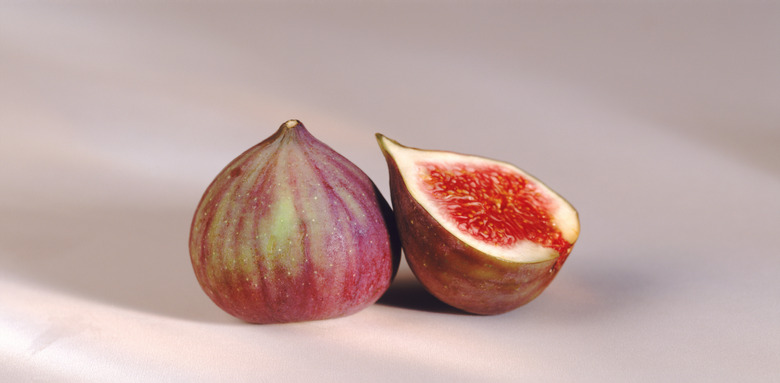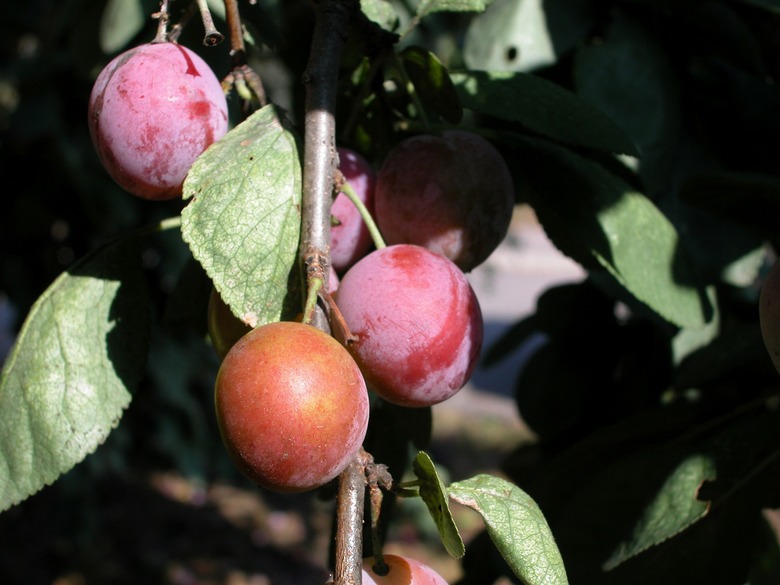Fruit Trees Recommended For South Carolina
Clemson University discusses recommended fruit trees for South Carolinians based on the four geographic regions within the state: mountains, piedmont, sand hills and ridge, and the coastal plain. Winter cold temperatures affect which trees survive as well as whether or not enough chilling occurs to produce flowers later in spring. South Carolina is in U.S. Department of Agriculture hardiness zones 7 (mountains and piedmont) and 8 (sand hills and coastal plain).
Apples
Apples
Apples (Malus domestica cvs.) grown in South Carolina need a cold enough winter to produce flowers in spring, a process known as vernalization. Clemson University states apple production is best in the mountains and piedmont. In warmer areas of the Palmetto State, there is increased threat of disease and potential lack of consistent flowering. Recommended varieties for anywhere in the state include: Yates, Granny Smith, Red Delicious and Golden Delicious. Outside of the coastal plain, plant Gala, Fuji and Ginger Gold.
Peaches and Nectarines
Peaches and Nectarines
Peach and nectarine trees (Prunus persica) derived from the same trees: nectarines simple are peaches lacking fuzzy skin. As with apples, peach and nectarine trees need winter chilling in order for flowers to occur in early spring. In the coastal plain, only choose varieties known to have a low chilling requirement, such as cultivars Armking, Flordaking, Fantasia, Junegold or Springcrest. Elsewhere, many more peach and nectarines varieties flourish in the cool but mild winters, such as Redskin, Redgold, Redhavan, Roseprincess and Georgia Belle.
Persimmons
Persimmons
Both native persimmon (Diospyros virginiana) and Asian/Japanese persimmon (Diospyros kaki) trees are grown in South Carolina. Native persimmons are much more cold-hardy and are appropriate to grow anywhere, while Asian persimmons are best in the southeastern counties in USDA zone 8. According to David Parker and Greg Reinhard of Clemson University, native persimmon trees are either male or female flowering, so multiple trees in an orchard assist in fruit set. Asian types do not need multiple trees, as they are self-fertile on a single tree. Recommended native cultivars are Garretson, Early Golden, Miller and John Rick. Good Asian varieties include Eureka, Great Wall, Fuyu and Hana Fuyu.
Figs
Figs
Figs (Ficus carica) are typically multistemmed large shrubs to bushy small trees. They are best grown all across South Carolina, except in the mountains in the state's far northwest. Cold winters often cause some branch die-back, so to avoid this, plant figs on southern sides of buildings or windbreaks. Cultivars Brown Turkey and Celeste (the most winter cold tolerant) are the most widely grown figs in the state, according to Clemson University. Avoid varieties that are regarded as "California types," as they need a fly for flower pollination that doesn't exist in the Southeast.
Plums
Plums
Three types of plum trees are grown in South Carolina: European (Prunus domestica), Japanese (Prunus salicina) and various native American species. Hybrids among these plum species also exist. Plums are grafted onto peach tree rootstocks that increase plant resistance to either root nematodes or canker disease. Plum trees must be planted in multiples, since cross-pollination is needed among trees that bloom at the same time. Varieties of plums for South Carolina are AU Amber, AU Homeside, AU Producer, AU Roadside, AU Rubrum, Black Ruby, Byron Gold, Crimson, Frontier, Methley, Morris, Ozark Premier, Robusto, Ruby Sweet, Segundo and Wade.
